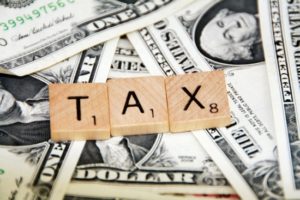Do You Need to Pay Quarterly Taxes?
| Posted by: mhcpa | No Comments
Are you self-employed? Did you know that the IRS can charge you interest and penalties if you don’t properly estimate (and pay) your quarterly taxes? If you’re self-employed or earn additional income from sources that do not withhold federal income taxes, you may have to make quarterly estimated tax payments. In some cases, your Social Security benefits fall into this category.
The IRS explains how to determine whether you will need to make estimated tax payments in Publication 505. You generally need to pay quarterly taxes if you expect to owe the IRS $1,000 or more in taxes when you file your tax return.
If you are self-employed, you have to send the IRS between 22.5- 28% of your gross income 4x a year to cover your income tax and social security tax obligations. If you are employed full-time but earn additional income from sources that do not withhold income taxes from your pay (and issue you form 1099), things get a little tricky.
Did you owe taxes last year or get a small refund? Do you earn more than $1,000 from sources that do not withhold income taxes? You may need to make estimated payments.
When Are Estimated Payments Due?
Estimated payments are due 4x a year. You must pay the IRS the appropriate percentage of your earnings from which taxes were not withheld by the payment deadline.
• For income earned Jan. 1—March 31, pay by April 15
• For income earned April 1—May 31, pay by June 15
• For income earned June 1—August 31, pay by September 15
• For income earned Sept. 1—Dec. 31, pay by January 15
Why Are Estimated Payments Due?
Employees on a payroll have their federal income taxes automatically deducted every pay period based upon the information they provided on their W-4 form. The employees’ company collects this money and sends it off to the IRS on a regular basis.
But when you are self-employed, or earn enough money on the side, you get paid by sources that that do not withhold taxes from your check. The IRS wants its money over the course of the year, not all at the end of the year when you file.
The IRS expects the self-employed to pay federal taxes on a rolling basis just like everybody else. Those who don’t pay by the quarterly payment dates will face an annual 8% in interest on the unpaid tax liability for every day the payment is late.
Clear as mud? If you are unsure of whether you need to pay estimated taxes, contact us We can help you calculate your need to filing and paying quarterly estimated taxes.
